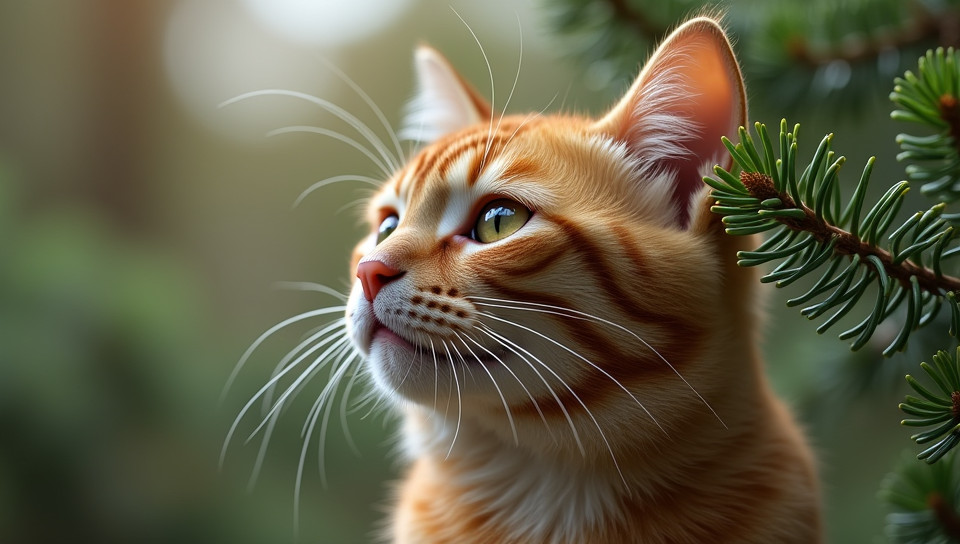Ingestion of pine needles causes stomach upset in cats 82%

The Hidden Dangers of Pine Needles for Your Feline Friend
As a cat owner, you want to ensure that your furry companion stays safe and healthy at all times. However, there are certain household items that can pose a threat to their well-being if ingested. One such item is pine needles, which may seem harmless but can actually cause severe stomach upset in cats.
What Happens When Cats Ingest Pine Needles?
Pine needles contain a chemical called terpene, which is toxic to felines. When a cat ingests pine needles, the terpene is absorbed into their bloodstream and can cause a range of symptoms, including:
- Vomiting
- Diarrhea
- Abdominal pain
- Lack of appetite
- Increased heart rate
These symptoms can be severe enough to warrant a trip to the vet, especially if left untreated.
Why Are Pine Needles So Attractive to Cats?
Cats are naturally curious creatures and have an instinct to investigate new smells and textures. Pine needles' unique scent and texture make them particularly appealing to cats, who may see them as a toy or a scratching post. However, this curiosity can get the best of them, leading to ingestion.
How Can You Prevent Your Cat from Ingesting Pine Needles?
While it's impossible to completely eliminate the risk of pine needle ingestion, there are steps you can take to minimize it:
- Keep pine trees and plants out of reach: If you have a pine tree in your garden or a pine plant indoors, make sure it's secure and inaccessible to your cat.
- Use pine needle-free mulch: When gardening, opt for mulch that doesn't contain pine needles to avoid attracting curious cats.
- Supervise your cat: Keep an eye on your cat when they're exploring the house or garden to catch any potential pine needle ingestion.
Conclusion
While pine needles may seem like a harmless household item, they can cause severe stomach upset in cats. By understanding the risks and taking preventative measures, you can help keep your feline friend safe and healthy. Remember, it's always better to be safe than sorry when it comes to your cat's well-being.
- Created by: Yìhán Guō
- Created at: Feb. 18, 2025, 8:57 p.m.
- ID: 20923








